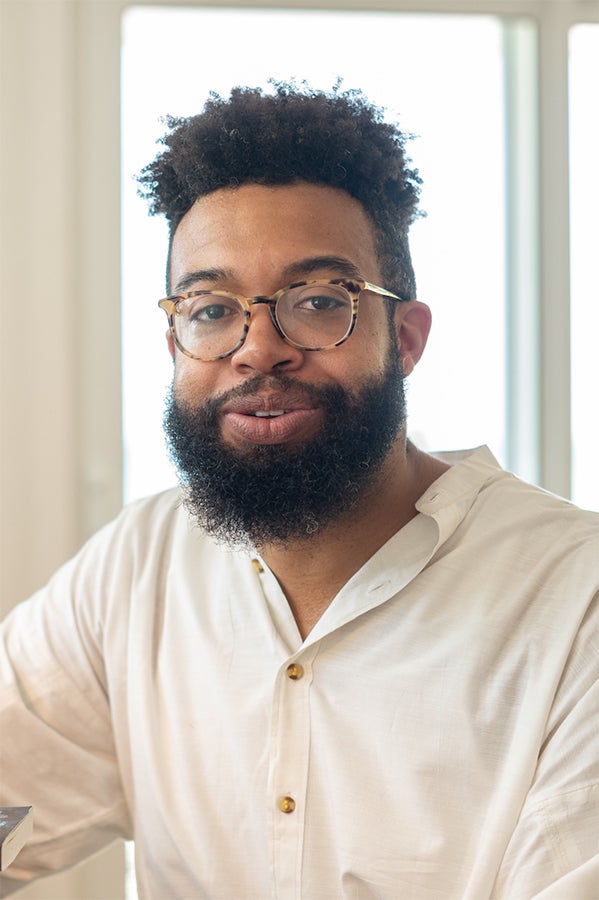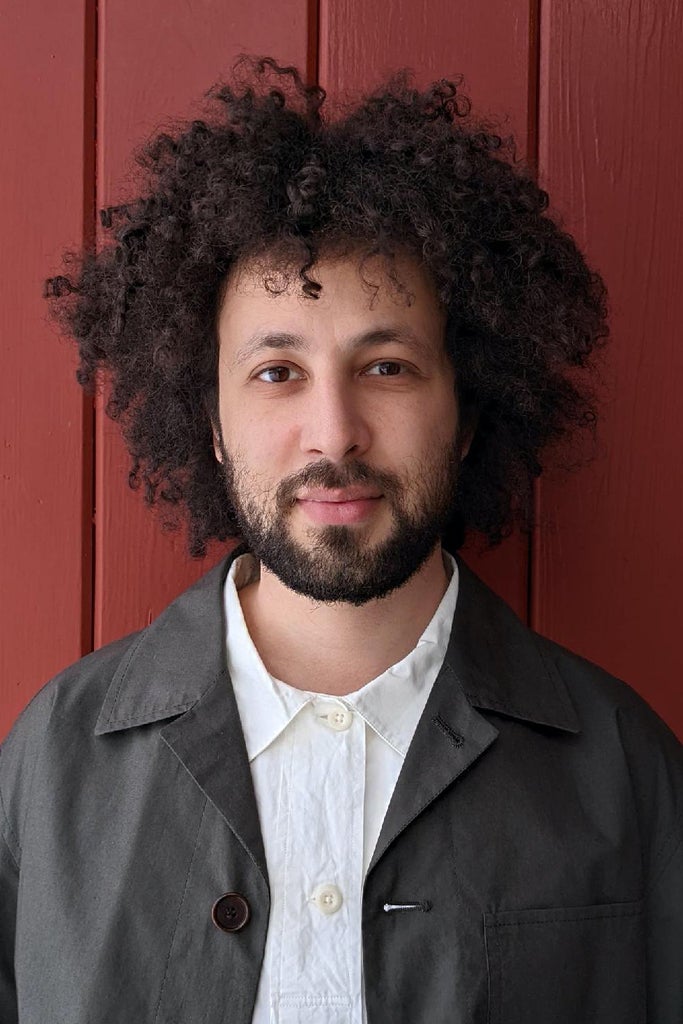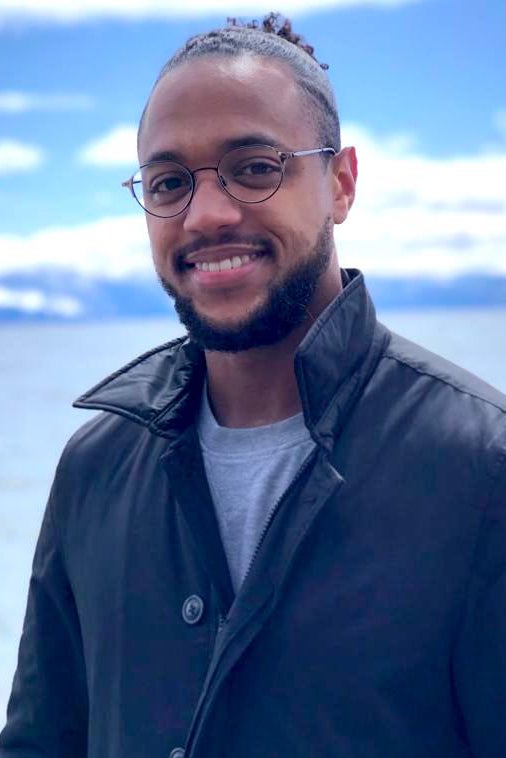Five scholars in the study of race and ethnicity will join the Stanford campus community for three years beginning in fall 2022 as part of the IDEAL Provostial Fellows program. This ambitious program is designed to support the work of early-career researchers who will lead the next generation of scholarship in race and ethnicity and whose work will help rethink and reshape race relations in this country.
The five scholars – Jamal Batts, Hector Callejas, Walter Gordon, Adam Simpson and Yuhe Faye Wang – will join the first cohort of IDEAL fellows who were appointed last year.
The 2022-25 fellows will be assigned to Stanford schools and departments, where they will work with a mentor selected from among Stanford’s Academic Council faculty, as well as with other early-career fellows and Stanford faculty. Each IDEAL fellow will teach one course per year while expanding on their research. They will also help organize a major Stanford conference that will bring together scholars at the forefront of the study of race and ethnicity.
“It’s a pleasure to welcome our second cohort of IDEAL Provostial Fellows to Stanford,” said C. Matthew Snipp, vice provost for faculty development, diversity and engagement. “The quality and depth of their research on race and ethnicity is truly impressive and I know they will contribute much to Stanford’s intellectual community.”
A primary goal of the IDEAL Provostial Scholars program is to increase the amount of research and teaching related to race and ethnicity at Stanford, as well as nationally.
“One of our long-range hopes for this program is that it will help provide a path to diversify the national professoriate,” said Snipp.
Short profiles of the fellows follow.
Jamal Batts
Scholar, curator and writer Jamal Batts, PhD, will join the Department of Art and Art History. He received his PhD from the Department of African American and African Diaspora Studies at the University of California, Berkeley.
His work reflects on the relationship between Black queer contemporary visual art and the intricacies of sexual risk.
Batts is a 2021-22 University of California President’s Postdoctoral Fellow, a Curator-in-Residence at the University of Pennsylvania, a 2020 Robert Rauschenberg Foundation Scholar-in-Residence, a 2020 Ford Foundation Dissertation Fellow and a ONE National Lesbian & Gay Archives LGBTQ Research Fellow. His writing appears in publications such as the catalog for The New Museum’s “Trigger: Gender as a Tool and a Weapon,” Open Space, ASAP/J and New Life Quarterly. He is a member of the curatorial collective The Black Aesthetic.
Hector Callejas
Hector Callejas (mestizo/Latino) is a PhD candidate in the Department of Ethnic Studies at the University of California, Berkeley. He will join the Department of Anthropology. He researches and teaches on Latin American and Latinx studies, Native American and Indigenous studies, sociocultural anthropology, human geography and decolonial methodologies. He received his MA and BA from Cal.
His research has been funded by a Mellon/ACLS Dissertation Completion Fellowship from the American Council of Learned Societies; a Graduate Student Research Fellowship from the National Science Foundation; and a Chancellor’s Fellowship from the University of California, Berkeley. He has received competitive research awards from various units at Cal: the Native American Studies program, the Center for Race and Gender, the Myer’s Center for Research of Native American Issues and the Ethnic Studies department.
Callejas is from the predominantly Mexican Latinx community in Sacramento, California. His parents immigrated from El Salvador and Guatemala during the civil wars in the early 1980s.
Walter Gordon
Working at the intersection of African American literary studies and the environmental humanities, Walter Gordon studies the links among race, literature, energy and ecology, particularly in relation to questions of labor and theories of modernity. He will join the Department of English.
Most recently, Gordon served as the 2021-22 Postdoctoral Fellow in the Public Energy Humanities at the University of Alberta, in collaboration with the Petrocultures Research Group and Transitions in Energy, Culture and Society. Raised in Berkeley, California, he received his MA and PhD from the Department of English and Comparative Literature at Columbia University and attended Oberlin College as an undergraduate.
Gordon is currently working on two main projects: a digital, interactive adaptation of Shirley Graham Du Bois’ 1941 tragedy Dust to Earth, and a monograph titled Prime Movers: Energy and Modernity in African American Literature, which tracks the interlinked cultural legacies of King Coal and Jim Crow and highlights other entanglements of race and energy across the 20th century.
Adam Simpson
Adam Simpson is currently a PhD candidate in the Civil and Environmental Engineering Department at Stanford, advised by Professor William Mitch. He will continue as a fellow in that department.
Simpson will advance his research at the nexus of public health, sociology and environmental engineering so that he can develop an environmental justice framework for studying foods in low-socioeconomic neighborhoods.
His work focuses on predicting the initial transformation products of food-based biomolecules and biopolymers, as toxic chemicals, caused by chemical disinfection processes on foods. His work has been supported by multiple fellowships, including a Stanford Graduate Fellowship, a National Science Foundation Graduate Research Fellowship and a DARE (Diversifying Academia, Recruiting Excellence) fellowship.
Simpson will receive his PhD in Civil and Environmental Engineering in May 2022. He earned his MS in Civil and Environmental Engineering from Stanford University and his BS in Chemical Engineering from Carnegie Mellon University.
Yuhe Faye Wang
Yuhe Faye Wang is a PhD candidate in American Studies at Yale University. She holds an MPhil in American Studies from Yale University and a BA in Gender and Women’s Studies with a focus in Economics from Pomona College. She will join the Department of History.
Her work centers on the intersections of Asian American history, legal history, the history of the North American West and studies of racial capitalism in the 19th century. Her current project investigates how the civil rights of corporations in the United States were built upon the civil rights of Chinese immigrants, and how a series of Supreme Court decisions entangled constitutional protections against racial discrimination with corporate law in the decades immediately after the ratification of the Fourteenth Amendment in 1868.
The IDEAL Fellows Program
The IDEAL Fellows Program now boasts 10 scholars in a wide variety of fields. The first cohort of scholars, appointed in 2021, are:
- Catherine Duarte, epidemiology
- Kelly Nguyen, classics
- Eujin Park, educational policy studies
- Michaela Simmons, sociology
- Jordan Starck, psychology
The Provostial Fellows Program is part of the IDEAL (Inclusion, Diversity, Equity, Access in a Learning Environment) initiative, a set of university-wide efforts designed to create a culture of inclusion, access, equity and belonging that infuses all areas of the university.
Read more about the IDEAL Provostial Scholars Program on the Office of the Vice Provost for Faculty Development, Diversity and Engagement website.




